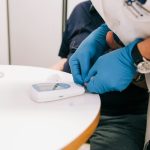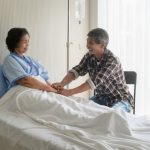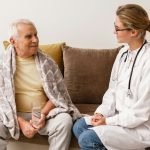Navigating type 2 diabetes: the road with and without complications
Type 2 diabetes is a condition that affects the way your body processes blood sugar (glucose).
Unlike Type 1 diabetes, which is typically diagnosed in...
How to stop a heart attack
Heart attacks are medical emergencies that occur when the blood supply to part of the heart is suddenly blocked, usually by a blood clot.
The...
Eating right to fight high blood pressure
When it comes to managing high blood pressure, also known as hypertension, the foods you eat play a crucial role. Many might not realize...
Early warning signs of kidney stones
Kidney stones, those pesky little crystalline formations that can wreak havoc in one's urinary tract, are more common than many might think.
Affecting a significant...
Black tea can help lower blood pressure
In an intriguing discovery from The University of Western Australia, researchers have found that enjoying a cup of black tea not just once but...
Aspirin and heart failure: what you should know
In a notable study from the University of Freiburg, researchers have shed light on the potential risks associated with aspirin use, particularly concerning heart...
What’s the connection between sugar intake and diabetes
Diabetes has become a global health challenge, with millions of people affected worldwide. It's a condition that disrupts the way your body uses blood...
Dementia after stroke: What you need to know
Dementia and stroke are significant health concerns worldwide, each with profound impacts on individuals and families. When these conditions intersect, the challenges can multiply,...
Common hair loss and prostate drug may help prevent heart disease
A new study by the University of Illinois Urbana-Champaign has unveiled a potential new benefit of finasteride, a medication widely known for treating male...
Common blood pressure medication may have harmful side effects
When it comes to lowering high blood pressure, doctors often prescribe a type of medicine called a diuretic. Diuretics help the body get rid...










